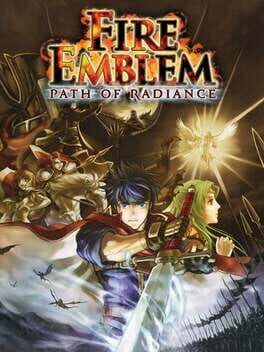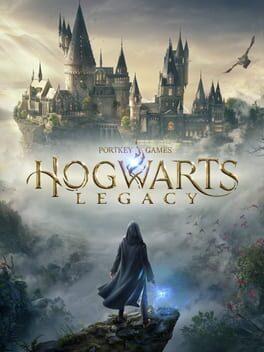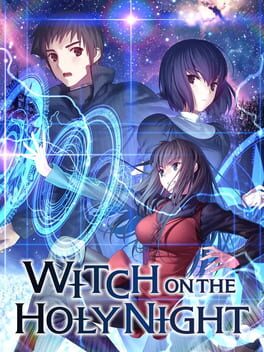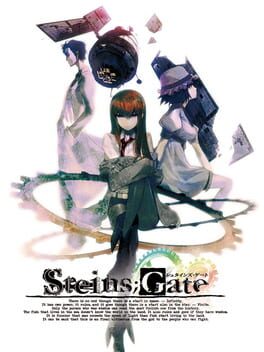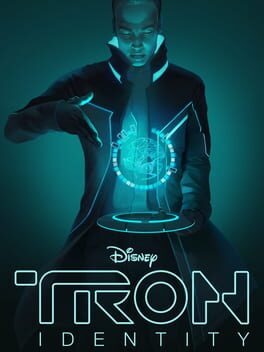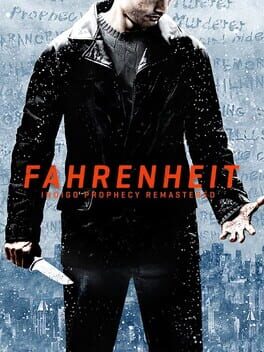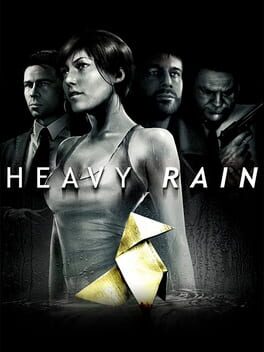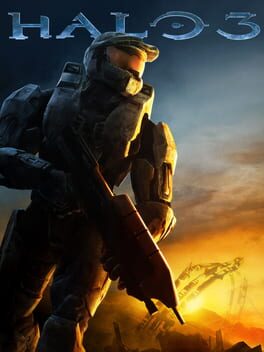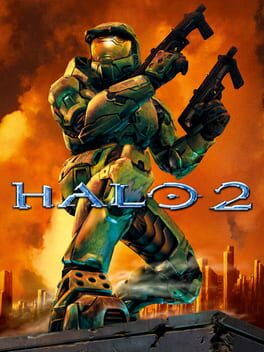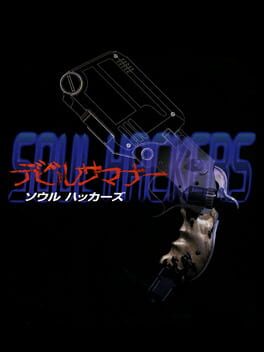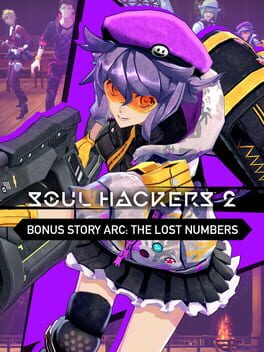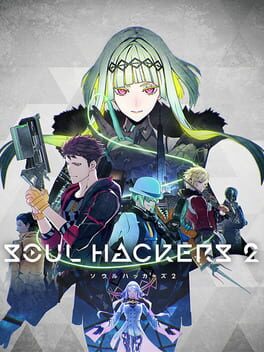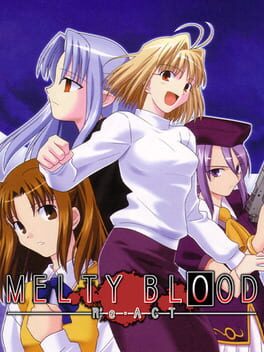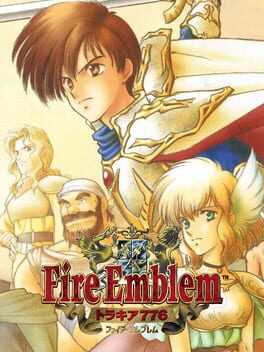HowardHeyman
What I'd consider to be a highlight reel of what makes a good Fire Emblem game, and probably the most consistently good game of the series. If you are curious as to what makes me like Fire Emblem, this game pretty much has it all.
The game's story has a well constructed world with tight worldbuilding and mature character writing that helps drive the exploration of war and conflict that makes the series stand out from other Nintendo exclusives. Moreover, the refinements made to the game's mechanics over previous games make this a much more streamlined experience, without losing the unique challenge that makes the series so addictive. Path of Radiance also boasts one of the best casts out of any game in the series, with units that are unique not just from a gameplay and balance point of view, but also with how they contribute to the game's story and themes.
Still, a lot of it comes with caveats that stop me from putting it at a pedestal compared to my favorites in this series. For once, outside of the solid character designs, the presentation is terribly weak. Compared to the immaculately crafted and animated 2D sprite work of previous games, the unappealingly simplistic 3D visuals of Path of Radiance fail to hold up. Moreover, I unfortunately found the game's soundtrack to be so much less memorable than its predecessors. The game's pacing is also uneven, having a slow and restrictive first act and a lackluster third act that isn't quite so satisfying as it half-heartedly wraps up the game's plot and doesn't offer much challenge so far as map design goes.
Regardless, I would still highly recommend this as a must-play if you're in any way interested in the series.
The game's story has a well constructed world with tight worldbuilding and mature character writing that helps drive the exploration of war and conflict that makes the series stand out from other Nintendo exclusives. Moreover, the refinements made to the game's mechanics over previous games make this a much more streamlined experience, without losing the unique challenge that makes the series so addictive. Path of Radiance also boasts one of the best casts out of any game in the series, with units that are unique not just from a gameplay and balance point of view, but also with how they contribute to the game's story and themes.
Still, a lot of it comes with caveats that stop me from putting it at a pedestal compared to my favorites in this series. For once, outside of the solid character designs, the presentation is terribly weak. Compared to the immaculately crafted and animated 2D sprite work of previous games, the unappealingly simplistic 3D visuals of Path of Radiance fail to hold up. Moreover, I unfortunately found the game's soundtrack to be so much less memorable than its predecessors. The game's pacing is also uneven, having a slow and restrictive first act and a lackluster third act that isn't quite so satisfying as it half-heartedly wraps up the game's plot and doesn't offer much challenge so far as map design goes.
Regardless, I would still highly recommend this as a must-play if you're in any way interested in the series.
2023
I ought to start this review by admitting that my perspective is ultimately biased. I've been a fan of Harry Potter since before I can even remember, and I spent countless days of my childhood dreaming and hoping I could be part of that magical world. Moreover, instead of growing up with the undisputed gaming classics, I spent most of my childhood immersing myself in the ultimately underwhelming adaptations of Harry's wondrous world, which were limited by tight deadlines and budgets and always fell short of their true potential.
From the beginning then, Hogwarts Legacy was a game I highly anticipated, as it promises a gateway into the world without any compromises. YOUR journey into the wizarding world. And while I can ultimately agree that time and budget were not compromised, I also have to admit that the game does compromise on its vision. Not for the sake of time or money, but for the sake of accessibility.
In summary, Hogwarts Legacy is a loving gift to hardcore fans of the franchise. The castle is re-created with immaculate detail, the world and lore is handled with great care right down to the small details, and the game easily rewards investment in the magical arts with its mechanics. Yet, it falls short of its true potential because it failed to take greater risks, thus losing a lot of the heart that made the series great.
Rather than focusing on a student's school life, education and relationships; the story shifts focus to an uninspired plot about rebellion, violence and arcane arts. While the castle is the center focus of the early hours of the game, its discoveries are limited so the player is encouraged to move on to a paint-by-numbers open world that fails to innovate and carries the same issues as a lot of the AAA junk that is easy to get tired of quickly. Though the mechanics are satisfying and fun, they never quite allow for player expression and ultimately suffer from their simplicity. And for as much as this is "your" story in the wizarding world, there's very few story and mechanical means to make your character truly your own outside of cosmetic appearance. At the end, it isn't an evil wizard that kills the magic, but the mediocrity of the standard AAA game design that does over time.
Still, as a fan, I'd still strongly recommend it thanks to how much love and passion the team had for the franchise. I can't deny that they cared about their fans, but I do feel like they compromised too much to make it as accessible as possible to ALL types of fans, instead of focusing on a consistent and strong vision. However, if you're not a fan of Harry Potter or AAA game design in general, I can completely see why you'd want to skip it.
Avalanche has built an excellent base with Hogwarts Legacy. They just have to embrace the magic of Harry Potter, while rejecting the mediocrity of AAA design trends.
From the beginning then, Hogwarts Legacy was a game I highly anticipated, as it promises a gateway into the world without any compromises. YOUR journey into the wizarding world. And while I can ultimately agree that time and budget were not compromised, I also have to admit that the game does compromise on its vision. Not for the sake of time or money, but for the sake of accessibility.
In summary, Hogwarts Legacy is a loving gift to hardcore fans of the franchise. The castle is re-created with immaculate detail, the world and lore is handled with great care right down to the small details, and the game easily rewards investment in the magical arts with its mechanics. Yet, it falls short of its true potential because it failed to take greater risks, thus losing a lot of the heart that made the series great.
Rather than focusing on a student's school life, education and relationships; the story shifts focus to an uninspired plot about rebellion, violence and arcane arts. While the castle is the center focus of the early hours of the game, its discoveries are limited so the player is encouraged to move on to a paint-by-numbers open world that fails to innovate and carries the same issues as a lot of the AAA junk that is easy to get tired of quickly. Though the mechanics are satisfying and fun, they never quite allow for player expression and ultimately suffer from their simplicity. And for as much as this is "your" story in the wizarding world, there's very few story and mechanical means to make your character truly your own outside of cosmetic appearance. At the end, it isn't an evil wizard that kills the magic, but the mediocrity of the standard AAA game design that does over time.
Still, as a fan, I'd still strongly recommend it thanks to how much love and passion the team had for the franchise. I can't deny that they cared about their fans, but I do feel like they compromised too much to make it as accessible as possible to ALL types of fans, instead of focusing on a consistent and strong vision. However, if you're not a fan of Harry Potter or AAA game design in general, I can completely see why you'd want to skip it.
Avalanche has built an excellent base with Hogwarts Legacy. They just have to embrace the magic of Harry Potter, while rejecting the mediocrity of AAA design trends.
The long-lost, forgotten Kinoko Nasu masterpiece finally comes home, giving us a revealing look at the past and hope towards the future of this series. Though the official translation work leaves a LOT to be desired (this cannot be understated), I still think the qualities that make this story so magical and endearing remain.
Witch on the Holy Night gives us a glimpse to a future of Visual Novels that is yet still unmatched by anything other than Type-Moon's latest remake. The novel uses its limited character art and backgrounds creatively to give a cinematic dimension to the reading experience, further enhancing the immersion and atmosphere that Type-Moon novels often took advantage of. This is best exemplified during its more active scenes, where limited keyframe animation and amazing coordination of sound effects and music creates breathtaking, exciting and magical moments that give the reading experience a whole new dimension.
But even without this breathtaking direction, the core presentation is still outstandingly solid, thanks to amazing character design and artwork by Hirokazu Koyama as well as beautifully rendered background art. The music also requires special mention, as it thoroughly outclasses the already outstanding work from Fate/Stay Night and takes the crown of the most rich, emotional and varied soundtrack accompanying a Type-Moon novel.
But that is only superficial to the true quality of Witch on the Holy Night, which is its beautifully told story of a group of outcast teenagers finding their purpose in life after trials and tribulations. Kinoko Nasu's tried and true blend of action and slice-of-life finds itself perfectly at home in this story, where the dynamic between youthful and eccentric characters lends to a touching coming of age story, where teenagers cope with the loss of their childhood by being thrust into a new and strange life they're not sure they fit in with, but learn to find a new reason to live and exist through each others' friendship and values. They find that, as time goes on, they shed parts of themselves to reconcile with their new life and come upon the true miracles possible from living.
Akin to that, the story perfectly juxtaposes these themes with the rapid industrialization and westernization of Japan in the 1980s, showing the parallel of culture being erased for the sake of progress, while a lot of the old ways become abandoned. The story then introduces magic, a waning and often undervalued art in the setting, as a parallel to the hopeful spirit that drives the teens, the new generation, into evolving and giving meaning to the new world around them. Despite the seeming erasure of the purity of everyday life, these teenagers find a miracle on their own and awaken to magic even more powerful and pure than that of old.
The themes of change, death of the self and ultimate self-actualization found through acceptance are expertly presented through magical metaphors that re-establish and re-contextualize so much of Kinoko Nasu's canon, thus establishing Witch of the Holy Night as the seminal work which ties so many of these stories about overcoming adversity and the meaning of life together.
There is nothing more touching than coming full circle, realizing that Witch on the Holy Night, originally written in 1996 and now finally published more than 20 years later, is the seminal work that binds this series together. Knowing that the lesson Aoko learned from Soujyuro here will soon become the foundation of Shiki's journey, and the magic established would also create the groundwork upon which Shirou's journey carries on, fills me with nothing but retrospective love and appreciation for all these stories. Witch on the Holy Night represents a beginning and an end that shows that, even in the threshold of a changing of the times, a new life and meaning can ultimately be reborn.
Witch on the Holy Night gives us a glimpse to a future of Visual Novels that is yet still unmatched by anything other than Type-Moon's latest remake. The novel uses its limited character art and backgrounds creatively to give a cinematic dimension to the reading experience, further enhancing the immersion and atmosphere that Type-Moon novels often took advantage of. This is best exemplified during its more active scenes, where limited keyframe animation and amazing coordination of sound effects and music creates breathtaking, exciting and magical moments that give the reading experience a whole new dimension.
But even without this breathtaking direction, the core presentation is still outstandingly solid, thanks to amazing character design and artwork by Hirokazu Koyama as well as beautifully rendered background art. The music also requires special mention, as it thoroughly outclasses the already outstanding work from Fate/Stay Night and takes the crown of the most rich, emotional and varied soundtrack accompanying a Type-Moon novel.
But that is only superficial to the true quality of Witch on the Holy Night, which is its beautifully told story of a group of outcast teenagers finding their purpose in life after trials and tribulations. Kinoko Nasu's tried and true blend of action and slice-of-life finds itself perfectly at home in this story, where the dynamic between youthful and eccentric characters lends to a touching coming of age story, where teenagers cope with the loss of their childhood by being thrust into a new and strange life they're not sure they fit in with, but learn to find a new reason to live and exist through each others' friendship and values. They find that, as time goes on, they shed parts of themselves to reconcile with their new life and come upon the true miracles possible from living.
Akin to that, the story perfectly juxtaposes these themes with the rapid industrialization and westernization of Japan in the 1980s, showing the parallel of culture being erased for the sake of progress, while a lot of the old ways become abandoned. The story then introduces magic, a waning and often undervalued art in the setting, as a parallel to the hopeful spirit that drives the teens, the new generation, into evolving and giving meaning to the new world around them. Despite the seeming erasure of the purity of everyday life, these teenagers find a miracle on their own and awaken to magic even more powerful and pure than that of old.
The themes of change, death of the self and ultimate self-actualization found through acceptance are expertly presented through magical metaphors that re-establish and re-contextualize so much of Kinoko Nasu's canon, thus establishing Witch of the Holy Night as the seminal work which ties so many of these stories about overcoming adversity and the meaning of life together.
There is nothing more touching than coming full circle, realizing that Witch on the Holy Night, originally written in 1996 and now finally published more than 20 years later, is the seminal work that binds this series together. Knowing that the lesson Aoko learned from Soujyuro here will soon become the foundation of Shiki's journey, and the magic established would also create the groundwork upon which Shirou's journey carries on, fills me with nothing but retrospective love and appreciation for all these stories. Witch on the Holy Night represents a beginning and an end that shows that, even in the threshold of a changing of the times, a new life and meaning can ultimately be reborn.
2009
Steins;Gate has proven itself to be the ultimate entry level visual novel to those without much experience with the medium. Its unique atmosphere, characters and artstyle are an easy gotcha, but its true strengths lie in its tight and solid exploration of time-travel based on really convincing pseudo-science. It's a concept that has so much potential for exploration, though I find that Steins;Gate does not ultimately take much advantage of it.
Outside of the premise of a butterfly effect like chain reaction causing an apocalyptic outcome based on innocent uses of time travel, the novel mainly focuses on fairly straightforward, if-not cliche, episodic character arcs that feel mostly unrelated to the mechanics of its setting outside of one ethical choice at the end of each.
And, for as much as the novel lampoons or even tries to subvert and deconstruct certain character writing tropes, its characters are so married to them that I can easily say I've seen the archetypes done better elsewhere and I'd much rather have Steins;Gate play more to its strengths of world-building and tone. Still, the fact that Steins;Gate doesn't go all out with its eccentricities is probably what has helped its longevity and accessibility in the long run, so I can't fault it too much. It was an enjoyable experience, though I can't help but feel like I was left wanting more.
Outside of the premise of a butterfly effect like chain reaction causing an apocalyptic outcome based on innocent uses of time travel, the novel mainly focuses on fairly straightforward, if-not cliche, episodic character arcs that feel mostly unrelated to the mechanics of its setting outside of one ethical choice at the end of each.
And, for as much as the novel lampoons or even tries to subvert and deconstruct certain character writing tropes, its characters are so married to them that I can easily say I've seen the archetypes done better elsewhere and I'd much rather have Steins;Gate play more to its strengths of world-building and tone. Still, the fact that Steins;Gate doesn't go all out with its eccentricities is probably what has helped its longevity and accessibility in the long run, so I can't fault it too much. It was an enjoyable experience, though I can't help but feel like I was left wanting more.
2023
The fact that this game exists in any way is a cosmic miracle. A Tron visual novel exists. One handled by a writer that clearly loves and understands the subject matter, no-less. One that continues and even expands upon many of the ideas introduced in the films that were never expounded upon. One that promises to keep the story going with further episodes that will further expand upon this world that we've been so deprived of in over 10 years. One that makes use of it's limited budget to maintain a striking presentation that matches up to the great atmosphere of Tron Legacy. All of this, of course, comes at a cost. Unfortunately, the game's short episodic length means that most of its decisions won't carry much weight unless a continuation expands upon them in some way. Similarly, it can't fully explore a theme rather than simply introduce it, so we will be relying on future episodes to decide if the Tron: Identity series is the continuation of the series we've been waiting for all along.
Let's face it though, it will probably be better than Tron: Ares at least.
Let's face it though, it will probably be better than Tron: Ares at least.
Having failed in just about every way imaginable to make a good game with The Nomad Soul, David Cage realized the true meaning of the words "The only way to win the game is to not play". How this translates into Indigo Prophecy is an experience that is more of a suggestion of interactive storytelling which defines "interaction" into the most patronizingly condescending gameplay imaginable. Only David Cage can design a videogame whose primary method of interaction is Simon fucking Says.
Regardless, I may be inclined to agree with the design practices of Indigo Prophecy if this "minimalistic" gameplay method was in service of complex, multi-faceted, and masterful storytelling. But of course, Indigo Prophecy fails at that too, but perhaps the fact that it fails so spectacularly is what makes the game ironically entertaining as a result. The beginning hours are a slog of Cage's usually offensive portrayals of sex, race and violence combined with convoluted storytelling meant to give the impression of depth by means of confusion more than complexity.
But, after a glorious moment of what I can only describe as "enlightenment" the game makes a hard switch into stupendously over-the-top action schlock that is so non-sensical and so emotionally charged that it circles back into being a fun time, though if only because it's easier to laugh at the game than alongside it.
Go ahead, play it with a few friends and see what I mean. You may not regret it. Or just don't play it at all.
Regardless, I may be inclined to agree with the design practices of Indigo Prophecy if this "minimalistic" gameplay method was in service of complex, multi-faceted, and masterful storytelling. But of course, Indigo Prophecy fails at that too, but perhaps the fact that it fails so spectacularly is what makes the game ironically entertaining as a result. The beginning hours are a slog of Cage's usually offensive portrayals of sex, race and violence combined with convoluted storytelling meant to give the impression of depth by means of confusion more than complexity.
But, after a glorious moment of what I can only describe as "enlightenment" the game makes a hard switch into stupendously over-the-top action schlock that is so non-sensical and so emotionally charged that it circles back into being a fun time, though if only because it's easier to laugh at the game than alongside it.
Go ahead, play it with a few friends and see what I mean. You may not regret it. Or just don't play it at all.
2010
Simultaneously the most respectable and most idiotic David Cage project. Though I will give it credit for improving upon the interactivity (or lack thereof) of Indigo Prophecy, and while I can't deny that it has the most distinctive style out of any Cage game yet thanks to the backing of being a Sony exclusive, it still fails in much the same way as the rest of Cage's repertoire, but without the ironic enjoyment of the amazing stupidity of Indigo Prophecy.
The plot of Heavy Rain is absolutely idiotic and poorly conceived in just about every way, from nonsensical character motivations, a frustratingly convoluted setup, dropped and unexplained plot points, a unimaginably obtuse mystery made more bewildering by contradictory presentation, and so much more yet. Heavy Rain's constant, heavy-handed attempts at drama juxtaposed with the utter carelessness and exploitation of its directing can even cross the line into being purely offensive. Yet the biggest offense is to the audience's intelligence, as they're tricked by cinematic presentation into believing that this storyline is anything but schlock.
Yet despite that, it still manages to be one of Cage's more entertaining games.
The plot of Heavy Rain is absolutely idiotic and poorly conceived in just about every way, from nonsensical character motivations, a frustratingly convoluted setup, dropped and unexplained plot points, a unimaginably obtuse mystery made more bewildering by contradictory presentation, and so much more yet. Heavy Rain's constant, heavy-handed attempts at drama juxtaposed with the utter carelessness and exploitation of its directing can even cross the line into being purely offensive. Yet the biggest offense is to the audience's intelligence, as they're tricked by cinematic presentation into believing that this storyline is anything but schlock.
Yet despite that, it still manages to be one of Cage's more entertaining games.
2007
An excellent middle-ground between the design of the first and second Halo games that ended up becoming my overall favorite in the end. At a base level, the moment to moment design of each level and set-piece offers the most variety and excitement out of any game in the original trilogy. It's presentation is also at an absolute peak, putting some of the best visuals for the 360 on display that far outmatched anything else in 2007. But when you add to that the inclusion of up to 4 player coop, greater weapon variety, and unique power-ups, you get an incredibly memorable and satisfying wrap-up to the Master Chief trilogy.
2004
A step-up from the first Halo that bridges the gap between the old-school FPS roots of the first game and brings it closer to the standard that we've come to accept for the genre nowadays. Though, while a lot of the streamlining of the level design and gunplay is appreciated, it does leave a lot to be desired when its set-pieces can often fail to compare to those of the first Halo, even if this game is a lot less repetitive. And for as much as I welcome the improved and bombastic cinematic presentation, I can't help but feel like the game doesn't quite wrap up in a satisfying enough way for me to say it is a wholesale improvement. At best, I can only treat Halo 2 as an appetizer for Halo 3.
More or less encapsulates everything I dislike about ATLUS games released during the 5th generation. Sterile, boring and clinical 3D environments running at abysmal framerates; Ear grating MIDI sampled music; Tedious mechanics that seem to exist only to waste your time as much as humanly possible; Paper thin storyline with only hints of greater meaning; This game pretty much has them all.
I can try to give as many back-handed compliments as I can to try to understand the appeal, like pointing out obvious observations such as "Kazuma Kaneko's designs are good" or "It is interesting to see a 1997 take on the internet and VR" and "It is nice to see ATLUS try more fleshed out and fun characters", but the fact of the matter is that none of these things make this an enjoyable experience when it otherwise struggles to keep my interest in a way that none of its contemporaries really struggled with.
I can try to give as many back-handed compliments as I can to try to understand the appeal, like pointing out obvious observations such as "Kazuma Kaneko's designs are good" or "It is interesting to see a 1997 take on the internet and VR" and "It is nice to see ATLUS try more fleshed out and fun characters", but the fact of the matter is that none of these things make this an enjoyable experience when it otherwise struggles to keep my interest in a way that none of its contemporaries really struggled with.
A decent story bundled around extremely low-effort content with frustratingly difficult boss fights, and a repetitive and uninspired new dungeon. The silver lining is that it's so unimportant to the main story that you can easily skip buying it without losing much. Though, considering how often and how low the Deluxe Editions of the game go for these days, it might honestly not be that big of a deal.
2022
Soul Hackers 2 is an anomaly. This feels like a game made by a small team for a lower budget aimed for release on the PSVITA or 3DS sometime around 2012 that somehow got stuck on a time vortex that caused it to end up as a multi-platform release on current generation home consoles. For all intents and purposes it should be a failure... Yet it is one of the most refreshing games ATLUS has released in the last few years.
Once you put aside the very obvious drawbacks like the limited presentation, minuscule scope and repetitive content, Soul Hackers 2 is a game that effortlessly breathes life into the genre by allowing ATLUS to use its smaller scale and budget to take bigger risks on elements that the company hasn't explored in decades. With a stronger focus on an adult cast and with a subversively uplifting theme that ties together technology and occultism, this game breaks free of the bland cynicism of current Shin Megami Tensei entries and instead presents players with a strong story that takes advantage of the complexity of an adult world.
Despite its limited resources however, Soul Hackers 2 is still an exemplary case of ATLUS' great attention to detail to the design sensibilities of their games. Despite being graphically outdated, the game oozes personality and charm in every scene, character and environment. With the help of outside artists like character designer Shirow Miwa and sound studio MONACA, the game even manages to stand out aesthetically from other ATLUS games in a way that makes it, once again, so very refreshing.
It is only a shame that the game is tied to the Soul Hackers IP. Not because it fails to live up to its potential, in fact, I think it more than exceeds the quality of the first game which is fairly mediocre for the time. It is a shame because it stands completely on its own while simultaneously alienating hyper fans of the first which reject anything that doesn't follow the same aesthetics as the first, or more mainstream fans that have little to no recognition or interest in the name.
Despite that however, the game may not achieve the heights of Persona 5, and it may be a while before it reaches the cult status of its predecessor, but Soul Hackers 2 is the little game that could. It is a game that leaves a lasting impact with so little to work with, and that, I find, is respectable and I would love to see ATLUS make more of these smaller and experimental games in-between their big releases instead of endless spinoffs. Hopefully as time goes on, the game's rating and fan reception will improve.
Once you put aside the very obvious drawbacks like the limited presentation, minuscule scope and repetitive content, Soul Hackers 2 is a game that effortlessly breathes life into the genre by allowing ATLUS to use its smaller scale and budget to take bigger risks on elements that the company hasn't explored in decades. With a stronger focus on an adult cast and with a subversively uplifting theme that ties together technology and occultism, this game breaks free of the bland cynicism of current Shin Megami Tensei entries and instead presents players with a strong story that takes advantage of the complexity of an adult world.
Despite its limited resources however, Soul Hackers 2 is still an exemplary case of ATLUS' great attention to detail to the design sensibilities of their games. Despite being graphically outdated, the game oozes personality and charm in every scene, character and environment. With the help of outside artists like character designer Shirow Miwa and sound studio MONACA, the game even manages to stand out aesthetically from other ATLUS games in a way that makes it, once again, so very refreshing.
It is only a shame that the game is tied to the Soul Hackers IP. Not because it fails to live up to its potential, in fact, I think it more than exceeds the quality of the first game which is fairly mediocre for the time. It is a shame because it stands completely on its own while simultaneously alienating hyper fans of the first which reject anything that doesn't follow the same aesthetics as the first, or more mainstream fans that have little to no recognition or interest in the name.
Despite that however, the game may not achieve the heights of Persona 5, and it may be a while before it reaches the cult status of its predecessor, but Soul Hackers 2 is the little game that could. It is a game that leaves a lasting impact with so little to work with, and that, I find, is respectable and I would love to see ATLUS make more of these smaller and experimental games in-between their big releases instead of endless spinoffs. Hopefully as time goes on, the game's rating and fan reception will improve.
2022
Not since UNDERTALE have I seen an indie developer hit it out of the park with such a strong vision right out of the gate. However, this should be unsurprising, as rose-engine wears its inspirations on its sleeve and lifts just the right kind of substance and structure from its fore-bearers and combines that with its own unique and personal interpretation that transforms it into something completely different. Whether its part Silent Hill, Resident Evil, Dead Space, NieR or Ghost in the Shell doesn't matter as much as the inherent passion behind its execution of the ideas it references and the new ideas it brings to the table. By taking the best of all and telling its own twisted, beautiful story in a uniquely dystopic world that's fascinating to learn about, SIGNALIS stands strong as one of the modern pillars of survival horror, showing the best that the genre has to offer in the least likely of places. For fans of Survival Horror, or newcomers to the genre, SIGNALIS is an excellent game to play and one of the best games of 2022 by a long shot. The game's thick atmosphere, perfectly executed art direction, engaging gameplay mechanics and complex story are all there for you to relish and enjoy in a package that won't cost you much and won't take much of your time to beat. Without a doubt, no reason not to play it.
2004
Melty Blood is the worldwide phenomenon that was never meant to be, and Re-Act is the perfect encapsulation of why. At its core, any Type-Moon diehard will recognize it as a continuation of the low production value, but creative and carefree style that was consistent throughout all of their early Comiket projects, warts and all. While later Melty Blood games managed to smooth out the edges and crank up the style, this early game remains as a promising start. It is easy enough for a fan of the visual novel to pick up, but much harder to master for the more die-hard fighting game fanatics.
